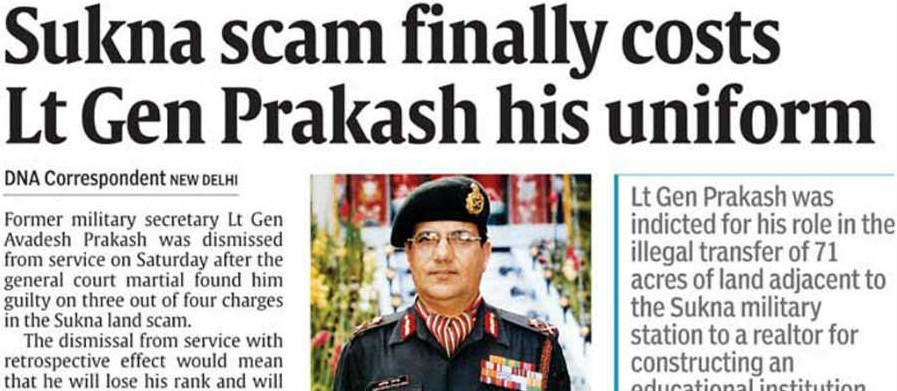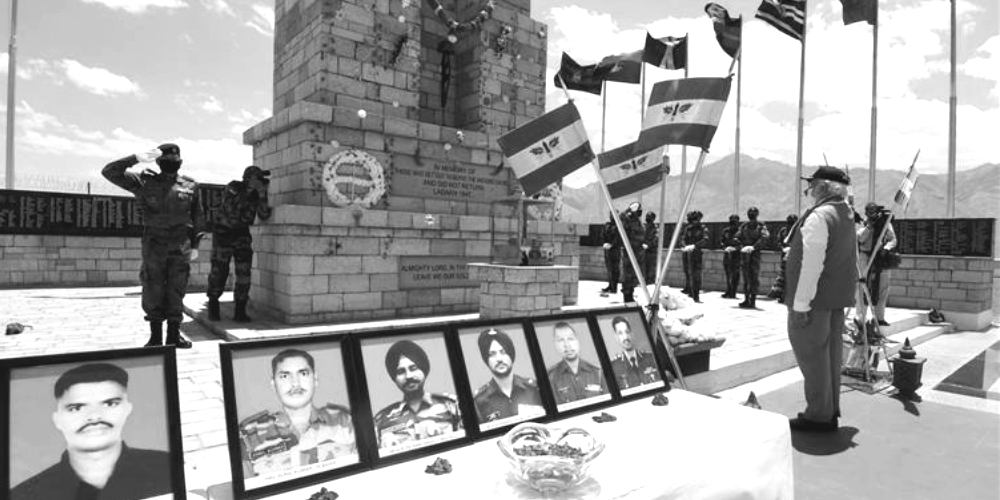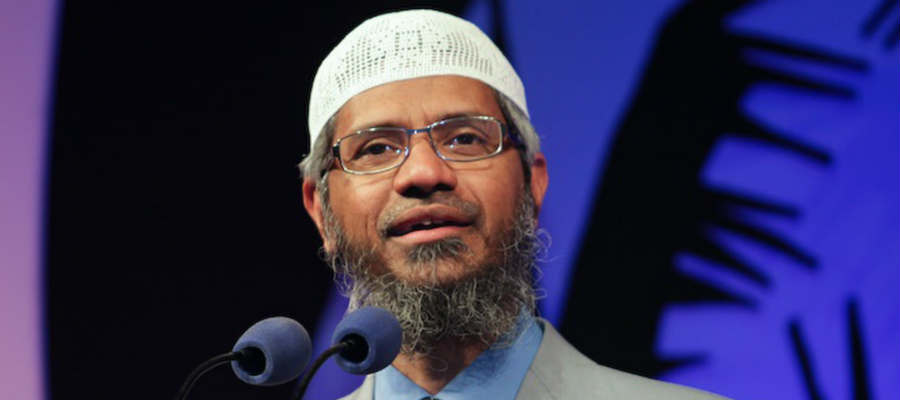BY JAY BHATTACHARJEE
The nation’s armed forces have an enviable position in the country’s institutional pedestal. For the last seven decades or so, the soldiers, sailors and air warriors have basked in the esteem of the citizens, who have been protected, safeguarded and rescued by the armed forces personnel in times of war, conflicts and natural calamities. Every survey has shown that the Indian military is one institution universally admired and respected by the public. The other pillars of the national framework, like the polity, the bureaucracy and the judiciary are not even within hand-shaking distance of the military in this particular competition.
Among the numerous factors that are responsible for this is that the armed forces also have an exemplary record in punishing any crime or misdemeanour by any member, irrespective of the rank and position of the offender. This is in glaring contrast with the shabby record of the civilian establishment in punishing crimes and transgressions committed by the babus, netas and the judiciary.
All this is about to change, if the general public gets to understand the ramifications of a bizarre judgement recently handed out by the Armed Forces Tribunal (AFT) of New Delhi or if this decision is allowed to stand in the books of Indian military law. The case was the following : OA 214/2012, Lt. Gen. P.K.Rath (Retd) (Petitioner) Versus Union of India & Ors. (Respondents). The decision was that of the Principal Bench of the Tribunal, consisting of Justice Sunil Hali, Member, and Air Marshal (Retd.) J.N. Burma, Member. In summary, the Tribunal upheld the appeal of the Petitioner, Lt. Gen. P.K. Rath (Retd.) (hereafter PKR) against the earlier judgement of a General Court Martial (GCM) which had convicted him on three counts under the Army Act.
PKR was not only absolved of all the charges against him, but the Tribunal also levied a fine of Rs. One Lakh on the Army for “wrongly” prosecuting PKR and, even more interestingly, denied leave to appeal to the Union of India. This, of course, does not stop the Army from appealing to the Supreme Court, which is the forum for appeals against judgements of Armed Forces Tribunals. Such an appeal, however, may not be made because of the reasons that will become clear as we assess this judgement and its implications. One can only hope that the new Raksha Mantri, Manohar Parrikar, will take the bull by the horns and ensure that the Army and the Ministry of Defence take urgent steps to appeal in the Supreme Court against this judgement.
Before we study the judgement, it would make things simpler if the verdict is summarised. PKR had been held guilty of 3 charges by the GCM on the 21st January 2011. The sentence of the GCM was confirmed on the 9th November 2011 and the promulgation order was on the 17th November 2011. All these decisions went out of the window on the 5th September 2014, when the Tribunal announced its verdict.
Why is this commentator worried about this judgement ? The short and summary answer is that it dilutes the higher standards set by the Indian military in terms of propriety, morality and norms, as compared to the civilian establishment. Like Caesar’s wife, our faujis have always set themselves above the babus and the netas. And rightly so. The Indian soldiers, along with our indomitable freedom-fighter revolutionaries, have demonstrated time and again over many centuries and particularly since Independence that they march to the clarion call of Horatius in The Captain of the Gate : “To every man upon this earth, death cometh soon or late. And how can man die better than facing fearful odds, for the ashes of his fathers and the temples of his gods ?”
A thorough reading of the judgment makes one uncomfortable and uneasy. It becomes evident at many stages that the Union of India, the respondent No.1 (for that read the Ministry of Defence (MOD) / Army) did not deal with this case as diligently as should have been done. The MOD, it appears, was quite willing to let its cause go by default. This brings up the issue whether the Armed Forces Tribunals (AFTs) should at all be placed under the administrative jurisdiction of the MOD, since the latter is invariably a party in all the proceedings before the AFTs. There is a clear conflict of interest here; why our legislators have not seen through this grave lacuna is not clear.
Let us return to the salient issues of this case. As the arguments of the petitioner unfold and as we unravel the judgement, it becomes painfully obvious that the primary target in this entire scenario is the Respondent No. 2, General V.K. Singh (VKS), the former Chief of Army Staff (COAS), undisclosed in the citation but mentioned clearly in the details. Like Banquo’s ghost, the former COAS is the spirit that hovers over every segment of this case. In the averments of PKR, he is clearly mentioned. However, since VKS is not the primary respondent, he was not given an opportunity to rebut the claims of PKR. That task should have been that of the MOD / Army, but clearly the latter were not interested. It is a classic example of a false-flag campaign to discredit a person by default.
It is now necessary to quickly review the basic features of this judgement. PKR was convicted by the General Court Martial on three charges, all of them falling under Section 63 of the Army Act, 1950. All three charges pertain to the offence of committing an act that is prejudicial to good order and military discipline or an omission to do something that results in prejudice to good order etc. The elaborate and convoluted reasoning of the AFT seems to have assiduously avoided the following basic queries:
(a) When PKR’s predecessor Lt. Gen. Deepak Raj had taken a categorical decision to oppose any private project on the Sukhna land, why did PKR over-rule this decision? What were the compelling factors that could justify such a U-turn?
(b) How can a private school be glibly declared as not being a security concern, particularly when the land where the school would come up, has a clear, untrammeled, view of the cantonment’s helipad and the Corps HQ itself?
(c) How does the AFT describe Sukhna as being far from the frontier? Did not the Tribunal itself say that the region of Sukhna is the only link to the North-Eastern states on page 55 of the verdict?
(d) Why does it absolve PKR of the offence of not keeping Eastern Command in the picture and conveniently passes the blame to his subordinates? Is this not a direct repudiation of the entire rules of military functioning?
(e) Where was the due diligence exercise on the promoters of the school, who were colourable characters with no experience in either academics or running schools? They were touting their non-existent links/ties with a well-known school in North India before they got caught out.
One can go on with the various omissions of the AFT. However, the basic problem here is that the target in this entire exercise is the former Army Chief, VKS. This is the logical outcome of the insidious “line of succession” argument that was peddled by the previous governments and its acolytes.
The babus and the legal eagles in the MOD have clearly not changed their tune or they would have strenuously countered the AFT’s mind-set.
This is a verdict that might undermine the basic framework of military law in India, setting precedents that will be used in the future to justify acts of omission and commission that simply cannot be permitted in the armed forces. The AFT members approvingly quote from an established treatise which states unequivocally that military justice must promote good order, high morality and discipline. However, they fail to do it themselves.
The final blow that Messrs Hali and Burma strike is against the Bhagvad Gita. They quote Shloka 34 in Chapter 2 of the immortal work to buttress their judgement. They say that the GCM conviction of PKR was an attack on his honour and character and that is why the AFT was restoring his reputation. “People will always speak of your infamy, and for a respectable person, dishonour is worse than death”.
This, I am sorry to say, is as disingenuous a piece of misinterpretation that I can think of. The shloka has been used totally out of context. Any study on the venerated book will bear out my contention, but I cite only Swami Chinmayananda’s and Swami Prabhupada’s books. The words in Shloka 34 are by Krishna to Arjuna, when the latter hesitates in fighting the great war. What Krishna says is that it is Arjuna’s duty to wage a just and righteous war; if he does not do so, he will have given up his duty and abdicated from his responsibility. He will have lost his fame; it is then that people will recount his everlasting dishonour, and for a person who has been honoured earlier, dishonour is worse than death.
This entire discourse is against the backdrop of following one’s duty and moral obligation in times of national and social crises. To reduce it to the level of a mundane court case and a reversal of an earlier judgement is a mockery of the great philosophy behind the original statement.
The Bhagvad Gita will survive the assaults of the AFT members. India’s military legal framework will, certainly, be damaged if this verdict stands.
(The author is an advisor in corporate laws and finance, based in Delhi)



11 Comments
The entire scenario seems like a range practice field where Gen. P.K.Rath (Retd) has become the target
This judgment is going to be quoted by every charged rogue in a Courts Martial to avoid punishment. God help service discipline. Look at the track record of one of the Judges when he was Chairman of the Air Force Naval Housing Board.
Although I have not read the said judgment of the AFT,yet I feel that the AFT would not have faulted in giving the said judgment in the said case.We have been hearing from the news print for the last so many years that these cases were pursued beccause of the personality/ego clash between the highest Army Commanders involved.It is also a known fact that Army Court Martials are also under the influence of senior vindictive commanders,that is why no wonder most of the verdicts given by the Court Martials are negated by AFT/High courts.
It is a case which has maligned Army’s reputation . Truth must prevail. Facts matter more than personal opinions. In my view MOD should appeal against the AFT judgement. The Supreme Court can put the lid on the case. Any more damage to Army’s reputation on this account is undesirable.
This article is BS.
The AFT has rightly ruled that there was no army land involved, nor was there any requirement under any law for the NOC. Gen Rath’s only offence is that he did not clear the NOC with his Army Cdr ie. Gen VK Singh.
If a Corps Cdr is not allowed to take any decision without the Army Cdr’s approval, there is something seriously wrong. What the article fails to mention is that, unlike in the Navy where a Court martial verdict is final and the judicial review can only reduce the sentence or acquit the accused, in the army the verdict of a GCM has to be approved. VK Singh did not approve the verdict of acquittal on all corruption charges and sent the case back to the GCM for reconsideration. It is to the credit of the members of the court that they refused to change their acquittal.
An appeal to the SC is only likely to result in further embarrassment to the army in general and VK Singh in particular.
AFT justifiably gave a verdict in favour of the Gen, who had an impeccable record of service and who became pawn in the power play of his superiors. Why his superior declined permission and why PKR acquscied are adm matters based on the discretionary powers vested in these appointments. In case the permission given was wrong then the next higher cdr could have overruled it. To defame a Gen with years of impeccable record was highly incorrect and with lack of empathy for a subordinate. That a GCM could only find frivlous charges against him itself was a proof that the whole thing was contrived and could have been avoided. In any case kudos to the AFT for having given justice to the officer at last.
Do the Judgement of the AFT matter to our Babus and who cares nonetheless.
I totally disagree with those who uphold the verdict of the tribunal. The genesis of the problem is not about hurt egos at the Corps- Army Commander level but that of increasing dilution of propriety and due processes that have been well established in the services since inception on the one hand and the perverted attempt of the MOD to show a former Chief in bad light from the time he raised the red flag against arbitrary manner of functioning of the system. VKS did well to take the battle where many before him should have taken but failed to do. PKR ought to have given sufficient and cogent reason why he turned over the considered orders of his immediate predecessor, and having done so did not take his superiors in command into confidence BEFORE overturning the orders. This is a matter of propriety and well established processes in the services. It was not an operational matter where a spot decision had to be taken, but one that ought to have been at the lowest rung of priorities for a Corps Commander. It was a serious lapse of judgement on the part of a Corps Commander and some might see a vested interest, rightly or wrongly. I sincerely hope Mr. Parrikar will set the house of MOD in order and restore the dignity and honour to the Services. There is no other professional service as clean as the defence services (in relative terms) and it is high time that they are enabled to set highest standards of professional standards and integrity.
AFT’s verdict against the GCM comes as a rude shock to all those who value “good order and military discipline” apart from a sense propriety and honesty. Unfortunately the AFT has given a go-bye to these very cardinal principles. We do fervently hope that the new RM Parrikar will order an appeal against this verdict in the SC. This is necessary to save the armed forces from slipping into the quagmire of anarchy.
An Army drops its discipline and code of chivalry to follow in the foots steps of the Neta-Babu-Cop-Milard-Crony Kleptocracy at very great peril to both the Nation and itself. The Indian State, which has demoted India from a Great Power in 1947 to a fifth rate power and a fourth world country seems intent in making the Army a full partner in its crimes.
One does not know the ‘real’ motivations that prompted the author to cast aspersions on the landmark AFT Judgement, which comes as a reinforcement of the fact that the military Courts martial can err in dispensation of justice, as has been documented in many past cases also, where judgments of the military Courts were reversed, expunged or set aside by the Superior Appellate Courts.
From whatever one has read/ heard of the subject case from the public domain/discourse, it is apparent that the GCM verdict against Lt Gen PK Rath, an outstanding officer of unimpeachable integrity, was a result of vendetta politics being played at the highest echelons of the army hierarchy, intended to build ‘someones’ image as an altruist, which soon fell apart, albeit damaging the honor and military reputation of non-pliable Gen PK Rath. What AFT has therefore rightfully done is to reverse this military wrongdoing.
Rather than dabble in subjective and utterly partisan debates as suggested by the writer, definitely indicative of benign yet smart ‘ventriloquism’ at play (for we all know ‘who’), the larger question for the legal luminaries and the policy makers is to revisit the archaic sections of the Army Act like 63 et al, which date back by almost two centuries, enacted by and for the colonial masters to strengthen their iron grip post 1857 the so called ‘mutiny’.
The new RM has far more emergent and important ‘fare’ on his platter to address, than to attend to ‘someones’ proxy calls made through the media!